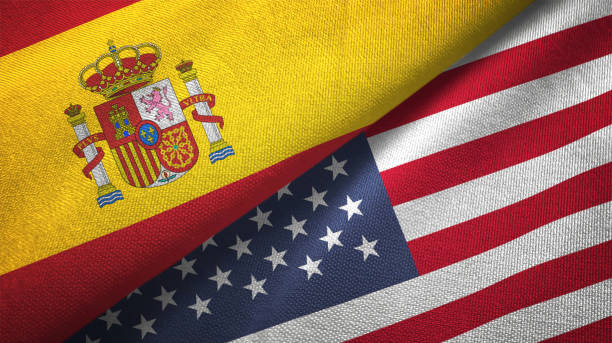
03
Jul 2025
As tensions rise over U.S. visa policies under President Trump, Spain has stepped in with a strategic move—offering expedited university access and work visas to foreign students barred from studying in America.
This policy shift not only signals Spain’s embrace of academic talent but also positions the country as a leading alternative for global education seekers.
Spain steps in as US shuts out
Foreign students struggling to complete their education in the U.S. due to recent visa suspensions now have a lifeline. On June 24th, Spain approved fast-track access to its universities for those barred by Trump-era restrictions.
According to Spain’s Migration Ministry, the revised student visas also grant part-time work rights, giving young scholars a path to continue their academic and professional pursuits without interruption.
The policy follows weeks of controversy in the United States. Several leading U.S. universities have clashed with the Trump administration over student-led pro-Palestinian protests. In response, President Trump froze research funding and threatened to strip Harvard University of its tax-exempt status.
European countries—Spain among them—seized the moment to boost their own research grants and court displaced talent.
A policy framed by politics and protest
At the center of the tension lies a broader culture war. President Trump accused top universities of becoming “bastions of antisemitism” amid growing demonstrations over the Gaza conflict.
His administration’s swift crackdown included funding freezes and immigration limitations, leaving international students stranded mid-degree.
In contrast, Spain’s Prime Minister Pedro Sánchez is taking a different stance. A staunch supporter of immigration, Sánchez sees foreign students as assets to the economy.
His government has highlighted the long-term benefits of a more inclusive education policy, especially as Spain works to boost innovation and compete globally.
Universities welcome a global talent shift
Spain is already a magnet for international students. According to the Open Doors website, the country ranks third behind the UK and Italy among preferred destinations for Americans studying abroad.
Every year, more than 20,000 students apply for visas to study in Spain.
By opening its borders wider, Spain stands to gain not only academic diversity but also economic stimulation. Students will contribute to the local job market under new visa terms, easing their financial burdens while injecting fresh energy into sectors like tech, healthcare, and research.

(Image courtesy of Oleksii Liskonih via iStock)
A strategic opportunity for Spain
The visa changes come at a moment of global repositioning. With the U.S. retreating from its role as the default education hub, Spain is stepping into the vacuum.
The government has introduced new immigration guidelines designed to speed up application processing and reduce bureaucratic delays.
While critics in the U.S. frame student protests as a crisis, Spain sees potential. Sánchez’s administration has matched this optimism with funding boosts for research and development.
These steps not only attract displaced students but also signal Spain’s intent to become a scientific and academic leader in the post-pandemic world.
Students face a choice beyond borders
For thousands of students caught in the crossfire between politics and education, the shift isn’t just geographic—it’s ideological. Spain’s messaging emphasizes openness, opportunity, and inclusion.
The U.S., once seen as the land of opportunity, now risks losing its appeal among the world’s brightest young minds.
“I came to study medicine in the U.S., but everything changed,” said a student affected by the visa halt, quoted in one of the official statements. “Now, I’m looking at Spain. It’s not just about finishing my degree—it’s about feeling welcome.”
Broader impacts across Europe
Spain isn’t acting alone. Other European countries, including Germany and the Netherlands, are also boosting research budgets and simplifying student visa pathways.
But Spain is among the first to link policy changes directly to the U.S. crackdown on student visas. It positions itself not just as an alternative, but as a global academic sanctuary.
Analysts say this could lead to a long-term brain drain from the U.S., especially if the administration continues to restrict foreign student entry. Universities that lose tuition-paying international students may also face financial strain.

(Image courtesy of StockSnap via Pixabay)
Immigration as economic investment
Sánchez’s government has framed immigration not as a challenge but as a lever for national growth. From language schools in Madrid to engineering labs in Barcelona, institutions are preparing to welcome a new wave of students.
Many come from the Middle East, Africa, and Southeast Asia—regions disproportionately affected by Trump’s visa suspensions.
These students bring more than just fees. They bring fresh perspectives, new research, and vital links to global communities.
Spain’s bet on talent could pay dividends in industries ranging from artificial intelligence to public health.
A gateway for global learners
Spain’s move to expedite university access for foreign students broadens Europe’s appeal as an education hub. Short-term and long-term visitors benefit from simplified entry, plus the right to part-time work.
This aligns with the upcoming European Travel Information and Authorization System (ETIAS), streamlining border procedures for non-EU nationals.
Spain’s openness may also influence broader Schengen visa policy, positioning the bloc as a more flexible alternative to increasingly restrictive systems elsewhere.
Rewriting opportunity for displaced talent
Migrants, particularly students stranded by U.S. visa crackdowns, now see Spain as a viable academic and economic refuge. The part-time work allowance offers not just education but economic inclusion.
With Trump-era policies accusing universities of antisemitism and targeting student protesters, Spain counters with a message of welcome and opportunity, echoing broader pro-migrant stances under Prime Minister Pedro Sanchez.

(Image courtesy of skyNext via iStock)
A strategic shift in European immigration dynamics
Spain’s liberalization signals a divergence from hardline immigration narratives elsewhere, emphasizing talent attraction for economic gain.
By fast-tracking students and enhancing research incentives, Spain redefines migration not as a crisis to manage but as an opportunity to harness.
This may nudge other EU countries to recalibrate their immigration policies—prioritizing academic mobility and soft power over deterrence.
Crisis into opportunity
In opening its doors to students sidelined by U.S. visa bans, Spain has positioned itself not just as an academic refuge, but as a forward-thinking hub of global talent.
By aligning immigration with opportunity, it has seized a moment to lead with inclusion where others build barriers .
As the U.S. tightens its gates, Spain’s welcome mat may prove to be the world’s new academic frontier.